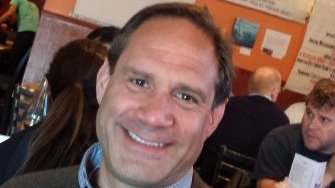WDI works with the Weiser Center for Europe & Eurasia (WCEE) at U-M to offer NGO Leadership workshops to non-profit leaders from across central and southeastern Europe. The workshops cover strategic planning, resource mobilization, resilience and digital security to help NGOs run more effectively and sustainably. The fall 2024 NGO Leadership workshop will be held in October in Warsaw.
WDI works with the Weiser Center for Europe & Eurasia (WCEE) at U-M to offer NGO Leadership workshops to non-profit leaders from across central and southeastern Europe. The workshops cover strategic planning, resource mobilization, resilience and digital security to help NGOs run more effectively and sustainably.
This article traces the development of management education in Central and Eastern Europe over the past 30 years and provide recommendations for the future of management education in this part of the world. The authors, Danica Purg and Alenka Braček Lalić of IEDC-Bled School of Management, identify emerging business issues in Central and Eastern Europe and the resulting opportunities for institutions in the region to respond to these challenges with appropriate management and leadership development.
This article is part of the 25 Years of Market-Based Solutions article series released in honor of the William Davidson Institute’s 25th anniversary. Since its founding in 1992, the Education Initiative at the William Davidson Institute has helped management education institutions around the world develop their capacity. We look forward to continuing this work — and sharing key learnings — over the coming decades.
Jack Foreman was one of the first WDI summer interns, when in 1991, he spent three months near Gdansk, a port city on the Baltic coast of Poland. But when he frequently mentions how the internship helped get his “sea legs” in business, he isn’t talking about anything to do with the water.

Foreman said the ability to find your way around a foreign country without speaking the language “isn’t something you can teach someone.” Instead, he said, you learn by doing.
“When I first got to Poland, I was feeling really uncomfortable, very self-conscious going up to a vendor to ask for a drink,” he said. “But eventually you find your way around, you get your sea legs.”
Foreman’s career as a Connecticut-based information services and product development consultant has required a large amount of international travel. He credits his WDI internship with giving him an advantage over those who were uncomfortable in foreign cities.
“I don’t think I ever would have been able to have the capacity to know where to start or how to talk to people if I hadn’t spent two to three months in Poland,” Foreman said. “It was an invaluable experience.”
After Foreman received his bachelor’s degree from the Wharton School of the University of Pennsylvania, he headed to Ann Arbor for his MBA studies. After his first year, companies such as IBM and Hewlett-Packard made internship offers, but sitting in an office didn’t appeal to him.
“I wanted something entrepreneurial and exciting,” Foreman said.
He heard about the international internship opportunities at WDI and “I remember being very, very, very interested in it.” He had more than a dozen friends review his application and cover letter to make sure it was perfect. He landed the internship, but first attended a three-week class on all things business and culture in Poland before leaving for Gdansk.
Foreman worked for a prestigious, small consulting company that was founded by the then-prime minister. The firm fielded several partnership offers from global firms because it understood the local market, he recalled.
Two of Foreman’s projects centered on privatization, a growing practice because Poland was in the midst of a democratic and economic transition away from the centralized Soviet system. One was with the trucking industry and the other with the shipping validation industry. He said the trucking project was “compelling to see how this all evolved over time.” The shipping validation project itself was “uninteresting, but always interesting too because you got to meet with people and talk with them about their business.”
A third work project involved evaluating the local market for potato chips. There was no existing data so Foreman would take a Polish-speaking woman with him and interview people on the street. He also surveyed which local stores carried chips.
“Basically I had to create our own approach to market research,” Foreman said.
Those work experiences and occasional weekend afternoons drinking beer and talking with Poles in the park gave Foreman the experience and comfort to work in business internationally, something that has come in handy throughout his career.
He says he can remember his summer in Poland “like it was yesterday.
“It was probably the most profound experience in my life,” Foreman added. “It’s something I’ll always look back on.”
Note: This is one in an ongoing series of articles profiling past WDI student interns and their career paths. Additional profiles in the series may be found here.